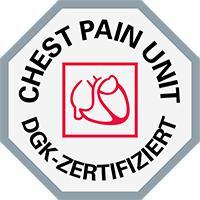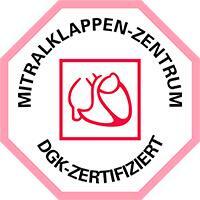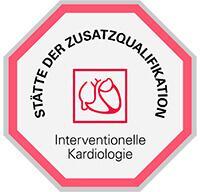Heart failure is a syndrome arising from the deterioration of the pumping function of the heart, which leads to its inability to provide the normal blood supply to the whole body. The circulation of nutrients and oxygen is disturbed, and blood stagnation occurs. This health condition can be acute and chronic.
Content
- Why does heart failure occur?
- Symptoms of heart failure
- Stages of chronic heart failure
- How dangerous is heart failure?
- Treatment of heart failure in European hospitals
- Is there any way to prevent heart failure?
- Why undergo heart failure treatment in Europe?
- The cost of treatment in Europe
Why does heart failure occur?
The heart is one of the most resilient organs in the human body, but when its compensatory capabilities are exhausted, heart failure can develop. In most cases, we are talking about serious heart diseases accompanied by myocardial dysfunction. The following pathologies are distinguished among them:
- Arterial hypertension.
- Cardiac ischemia.
- Congenital and acquired malformations.
- Cardiomyopathies.
- Myocarditis.
- Arrhythmias (tachycardia, bradycardia).
Specialists also note a gender predisposition to certain scenarios of heart failure development. For example, women more often develop this pathology against the background of arterial hypertension, while in men this condition occurs due to coronary artery disease.
The dependence of the heart disease development on smoking or excessive consumption of alcohol is officially proved. In more rare cases, the traumatic etiology of the disease is a predisposing factor, the most common of which is electric trauma.
The occurrence of heart failure in a person may also be associated with hormonal disorders and autoimmune health conditions. Indeed, patients with diabetes are at increased risk of developing heart failure. Heart failure is objectively considered one of the most serious complications of various severe diseases, directly or indirectly affecting heart function.
Symptoms of heart failure
The clinical picture of acute heart failure involves acute right ventricular congestion characterized by an increase in venous pressure, which leads to swollen cervical veins, tachycardia, and an increase in liver size. When palpating the right subcostal area, severe pain is felt, which also indicates hepatomegaly. If a decrease in blood pressure is observed against the background of the above symptoms, this indicates insufficient filling of the left ventricle, which in turn can lead to cardiogenic shock. Acute left ventricular congestion may also develop and be characterized by attacks of dyspnea, choking, and an incessant cough. Breathing is loud, turning into whistling. The patient suffers from tachycardia, while the blood pressure may be normal, high, or low.
As for manifestation of the chronic type of heart disease, symptoms differ from the ones described above. It is characterized by the following signs:
- Shallow frequent breathing (shortness of breath).
- Rapid heartbeat.
- Cough, which may be dry at first, and after some time with mucous sputum or even blood.
- Swelling at first occurs only in the legs, but with a complicated course of the disease, it may rise upwards and appear even on the torso region.
- Unusual fatigue may appear when performing ordinary activities.
Stages of chronic heart failure
There are several stages of chronic heart failure. The earlier the health condition is detected, the easier it can be treated. In the advanced stages of the disease, the mortality rate is 50%.
The first stage of chronic heart failure is characterized by shortness of breath and rapid fatigability after vigorous physical work or doing sports. The treatment at this time is the most effective. Early detection of symptoms of chronic health conditions not only helps to cope with it, but also to determine its true cause.
In the second stage of heart failure, symptoms become more pronounced. They include the following:
- Cyanosis, or bluing of the fingertips, nose and nasolabial folds, or lips, the cause of which is a change in blood composition, or insufficient oxygen content.
- At exertion of low intensity, symptoms including shortness of breath, palpitations, and general weakness appear.
- Dry cough, not associated with a cold.
The second stage is characterized by the lesion of the small circle of circulation, functional impairment of the lungs, so there is a cough, and the blood is poorly saturated with oxygen. Another variant of manifestation of the second stage is the lesion of the large circle of the circulation. In such cases, first of all, edemas appear. They may be hidden: fluid accumulates in body cavities, for example, fills the abdominal cavity. The swelling of the legs is more noticeable. This condition is called dropsy. In addition, stagnation begins in all organs, including the liver, kidneys, digestive system, and brain. The associated health conditions develop, and the work of these organs is disturbed.
The third stage is characterized by irreversible changes. As a rule, the work of the whole circulatory system is disturbed. There is a violation of the permeability of numerous vessels, lymphatic fluid filling the lungs, and edema occurring. The health condition is fatal and requires urgent hospitalization. Breathlessness accompanies a person at rest. It increases when lying down. Periodic episodes of choking accompanied by panic attacks occur. This forces the patient into a sitting position with the legs down.
At the same time, all vital organs are affected. For instance, the signs of congestive liver damage include increased volume of the organ, formation of sclerosis and connective tissue, and liver cirrhosis.
Congestive kidney damage leads to chronic renal failure. At the same time, the amount of excreted urine decreases, edema increases, and no longer goes away under the influence of drugs. Intestinal disorders arise, constipation or diarrhea are possible.
The third stage is irreversible. The person may completely lose the ability to be active. Even household chores become impossible for some patients. The patient is usually considered disabled to some degree. In this case, the survival rate is 50%. In such an event, medicine can only offer supportive therapy.
How dangerous is heart failure?
Acute heart failure (AHF) is a severe pathological condition that develops in patients with various heart diseases and variants of hypertension. This is one of the most frequent causes of ambulance calls and hospitalizations, as well as fatal outcomes.
The main manifestations (symptoms) of AHF include severe and frequent dyspnea, sometimes reaching the degree of suffocation, with predominant difficulty in breathing and a clear deterioration of the health condition, with often wheezing sounds when breathing becoming audible, interrupted by coughing.
Acute heart failure can develop very quickly and within 30-60 minutes lead to the death of the patient. In most cases, 6-12 hours or more pass from the first clinical signs to severe manifestations of AHF, but without medical attention, the vast majority of patients, experiencing the condition, die.
A distinctive feature of acute cardiovascular failure is the suddenness of the attack, the absence of these stages of congestive heart failure. The person's condition worsens rapidly, a lethal outcome is possible within a few minutes. The occurrence of pathology is evidenced by a sharp deterioration of the condition, choking, skin turning blue, and a cold sweat.
In such cases, the first aid is to call an ambulance. Then the person should be taken out into the open air. The best posture is considered sitting, with the legs down. Nitroglycerin should be given.
Everybody has to remember that heart failure is a condition prone to continuous progression despite ongoing therapy. Therefore, the most important point is the timely and rational treatment of diseases of the cardiovascular system, always preceding the emergence of heart failure (coronary artery disease, hypertension, heart rhythm disorders).
A sharp deterioration in health condition in people with heart failure (increased shortness of breath, weakness) is usually a sign of exacerbation of the underlying disease (for example, myocardial infarction in ischemic heart disease, arrhythmia attack in its unstable form) and is considered an indication for immediate hospitalization in the cardiology department of the hospital.
The treatment of heart failure exacerbation (decompensation) should be carried out only in specialized departments by qualified cardiologists.
Treatment of heart failure in European hospitals
The treatment of congestive heart failure is most effective at the first stages of disease development. Later the possibilities of modern medicine are limited. They are usually limited to mitigation of the clinical manifestation of the disease. The symptoms of heart failure in the elderly are especially difficult to treat. This is explained by the neglected stage of the disease and the body's low ability to recover.
The main method of treatment of congestive heart failure is therapy with medication. In particularly severe cases, surgical operations are performed, up to and including transplantation of the main organ.
Depending on the cause of the heart failure, the following surgical treatments can be used to prevent further heart damage:
- Coronary artery bypass surgery is performed when the coronary arteries are blocked and it can also be used to restore normal blood flow to the heart muscle.
- Heart valve replacement or valve correction is performed when there is a heart valve defect.
- Surgical correction of the left ventricle to restore its normal volume and shape.
- Cardiac resynchronization therapy (implantation of a pacemaker) is performed to improve the filling of the ventricles with blood, primarily by ensuring their synchronous functioning.
- Heart transplantation is performed in patients with severe, progressive heart failure and is sometimes the only treatment option.
An important component of rehabilitation treatment is lifestyle adjustments, including:
- Elimination of aggressive physical activity.
- Elimination of smoking and alcohol consumption.
- Compliance with a therapeutic diet.
- Avoiding stressful situations.
Is there any way to prevent heart failure?
The risk of heart failure can be significantly lowered by lifestyle changes, which include the elimination or implementation of certain activities.
In the development of the first and second stages of the disease, regular moderate physical activity is indicated. It will fight stagnation in the body and edema. A sedentary lifestyle disrupts metabolic processes, slows blood flow, changes the work of the venous and lymphatic systems, and thinning muscle fibers (including myocardial fibers). In some cases, the lack of optimal physical activity leads to metabolic disorders and as a consequence, overweight and obesity, which subsequently greatly increase the possibility of heart failure.
Then blood pressure increases with body weight gain. An increased amount of fatty tissue needs blood, so the strain on the heart increases. In a patient with such a health condition, cardiac output also increases, which causes diastolic dysfunction and left ventricular hypertrophy. Therefore, physical activity has to be present to prevent heart failure development.
To prevent the development of heart failure, it is also recommended to follow a healthy diet. It is necessary to minimize the consumption of alcohol, drinks containing caffeine, foods rich in cholesterol, spicy and smoked foods, and foods that contain refined sugar.
Complete smoking elimination is essential for heart failure prevention. The rhythm of the heart muscle under the influence of nicotine becomes considerably faster, there is a spasm of blood vessels. These factors complicate the work of the heart, and may independently influence the development of heart failure.
Mental and emotional stress also play a huge role in the development of the disease. Our body is responsive to mental stress, and people who are often under a lot of stress notice frequent changes in the heart rhythm. To prevent the disease, it is important to find healthy comforting ways to deal with stress and constantly pay attention to your emotional state. High levels of cortisol ("stress hormone") lead to damage to the cardiovascular system. Stressful life situations and emotional overstrain lead to spasms of coronary arteries and microvessels. Anger, excessive excitement, especially in combination with a lack of sleep and physical overload, can cause acute myocardial infarction.
Alcohol elimination is a critical factor in prophylaxis against heart failure. All alcoholic beverages are cardiac depressants. The most common diseases resulting from their abuse are myocardial infarction and cardiomyopathy. When alcohol is consumed, the blood vessels constrict and the heart rate increases. The content of norepinephrine and adrenaline in the blood rises.
And finally, preventive examinations by a cardiologist are of vital importance. Regular check-ups and consultations with a specialist are needed to ensure that treatment is started on time, if necessary.
Why undergo heart failure treatment in Europe?
The treatment of heart failure in Europe is provided by a multidisciplinary team of doctors. European hospitals offer comprehensive inpatient and outpatient care for patients with any stage of the disease, including severe cases. Cardiac surgeons working in European hospitals have years of experience in treating complex cases of cardiac failure. They are capable of performing non-standard high-tech surgeries and heart transplantations.
Doctors in Europe are also among the world leaders in scientific research and clinical trials in the field of therapy for cardiovascular diseases. Patients at European hospitals can benefit from innovative therapies long before they become available in other countries.
So, if you have an idea of undergoing treatment in Europe, a consultation with Booking Health may help you clarify the aspects of the treatment organization.
The cost of treatment in Europe
The cost of treatment in European hospitals is determined by several factors, one of which is the prices for a particular medical service in the country. It is noteworthy that the prices for diagnostics and treatment in Europe are determined by government agencies. Each year, the Ministry of Health of each country publishes on its website a list of medical services and prices for them. These prices are set in all public hospitals. As for private medical institutions, as a rule, they try to match the country's established cost of treatment due to competition with public hospitals.
The cost of treatment with conservative therapy in European hospitals includes mainly prices for drugs. It is noteworthy that the medical center in Europe where you decide to go has both local and imported drugs. You can buy medications on the spot, or you can buy them at home (if they are available there) by providing a prescription written by a European doctor.
If you need any assistance figuring out the cost of treatment in your clinical case, Booking Health can help you. All you have to do is fill in the request form on the Booking Health website and a consultant from the Booking Health company will contact you shortly.
Authors: Dr. Vadim Zhiliuk, Dr. Sergey Pashchenko


















